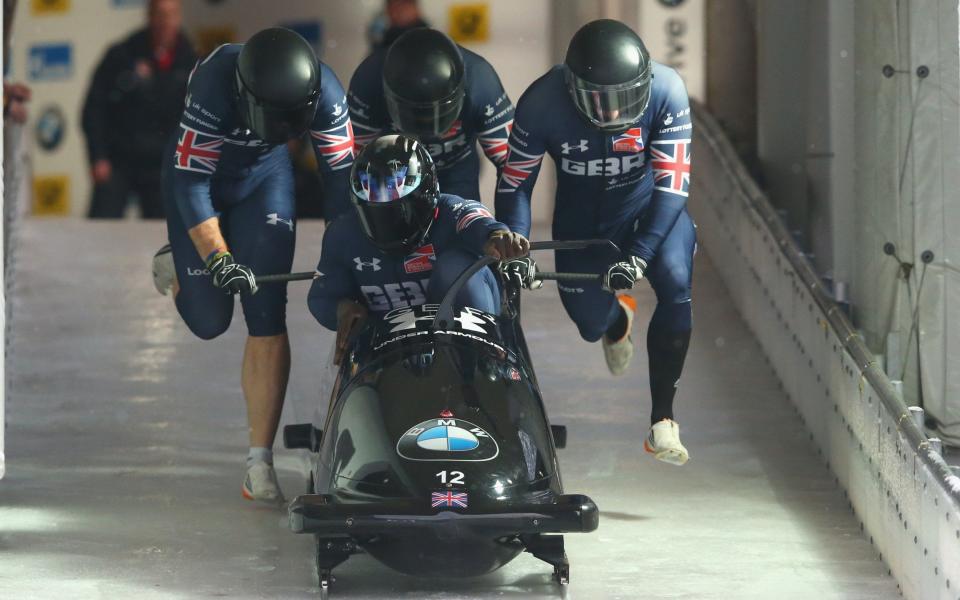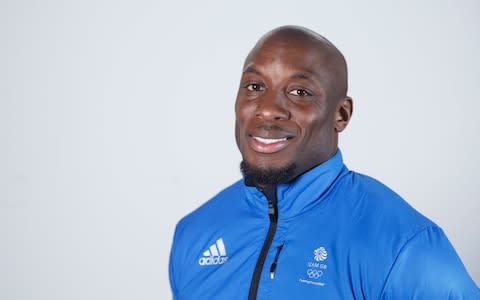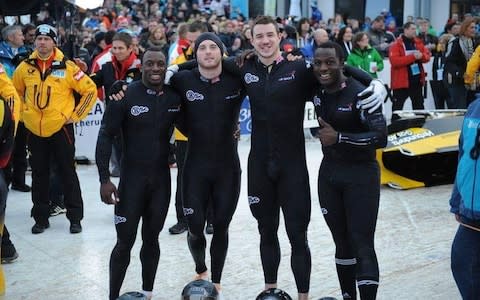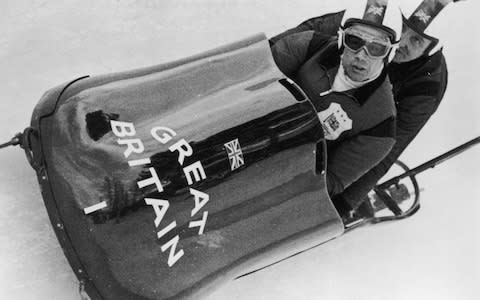10 things no one tells you before you take up bobsleigh

Andrew Matthews, Team GB’s brakeman in the 4-man Bobsleigh at the Winter Olympics in Pyeongchang, reveals what it takes to hurtle along an ice track, at 80mph in pursuit of Olympic Gold…
It helps to have had Linford Christie as your coach
“I came to the Bobsleigh from track athletics and 100m sprints. I was in the Team GB squad prior to London 2012, Linford Christie was my coach, but a series of injuries ruled me out of the Games. I then approached by the performance director asking if I fancied trying out for the bobsleigh using my sprint skills to push the trolley at a training track in Bath.”
Britain’s bobsleigh team is on track for Olympic medals
“Our form going into these Olympics is the best it’s been in ages, we’re on track for medals and we’ll be hugely disappointed it with don’t get them. When I competed at Sochi 2014 it was my first Olympics. I was bit like a rabbit in the headlights racing in Crew 2. We finished 19th while Team GB’s Crew 1 missed out on bronze by fractions of a second. This season we broke a course record in Whistler, Canada so we’re in great shape.”

Never write off the Germans
“Our main medal rivals are the Canadians, the Americans and especially the Germans. Just like their football team they’re super efficient, extremely well regimented and very disciplined. They love the sport and have a load of their own tracks. While we have two teams and two pilots they’ve got six. We don’t know what’s happening with the Russians - they’ve had some good results this season. But they all need to take notice of us because the Brits are coming!”
Crashing is like being inside a tumble drier
“I’ve had more injuries as a sprinter than as a brakeman but crashing the bobsleigh isn’t fun. The fear of it is worse than the event itself. I was terrified because there have been some bad injuries – broken backs and collar bones – in the past. When it happens it’s like being inside a tumble drier – you’re thrown around inside the trolley, turning over and over. You go into survival mode, preparing the body for impact, trying to keep yourself moving to stop getting ice burns and hoping you’ll grind to a halt soon.”

Strength training is crucial
“Competing in the bobsleigh is basically pushing a 220kg trolley on to a track and getting up as much momentum and velocity as you can in those initial five seconds absolutely spot on. We do a lot of strength training away from the course, lifting weights, doing power cleans, squats, Olympic lifts and climbing steps with 60kg weighs on our backs - all just to get the trolley up to speed from a standing start.”
It’s like F1 on ice
“Bobsleigh like Formula One is a highly technical sport. We spend many hours away from the track, in the garage, working on the details of our take-off, choreographing the movements and sorting out the aerodynamics of the sled. We have to polish the runners ahead of the race, plus we do all the behind-the-scenes humping and dumping – loading the trolley on to a truck, driving from Germany to Austria say, unloading it, ensuring all the parts are secure and polishing it up for the race.”

I wasn’t prepared for the cold
“I came from a sprinting background and although the skills transition was easy enough, sprinting on ice whilst pushing a trolley is still sprinting, the temperatures are very different. I was used to tracks and hot climates. The coldest I’ve been was in Calgary in Canada – there it was -30C and windy which made it feel even colder. We’re regularly racing in places where it’s between -10 and -20C. As a team we find ourselves standing on the block in just our lycra and helmets and asking; ‘What the hell are we doing here?’
Positioning is pivotal
“We work for so long practising getting in and out of the trolley because it’s essential to get it perfect. If you’re too slow to get in, even by fractions of a second, it can cost you a medal. If you’re not in properly or part of you is creating more drag it can cost you a medal. When I first started racing I felt the behind the scenes work was too off-putting, it wasn’t like athletics where you just turn up and run. You have to do so much before and after that short time on the track – but now I’m used to it.”

We’ve grown as a team
“Over the past four years we’ve developed into a much stronger crew and we’re getting a reputation as being the tough team to beat. The sport attracted a lot of controversy in Britain last summer but it helped bring us closer together as a team. We’ve competed at some of the hardest tracks in the past year – including Lake Placid – and we’ve performed well. Because of that my favourite tracks are the ones the other teams don’t like.”
For a competitive athlete, it’s the best
“Coming from such an individual sport like athletics to a sport where teamwork is the key to success has been amazing. I get a great adrenaline rush ahead of every race and knowing team-mates rely on me helps me get out of bed on very cold mornings and go to the garage to put in the hours every day. If you’re naturally competitive it’s an amazing sport to be a part of.”
Andrew works with GB Active Train, your opportunity to train with Team GB Athletes

 Yahoo News
Yahoo News 